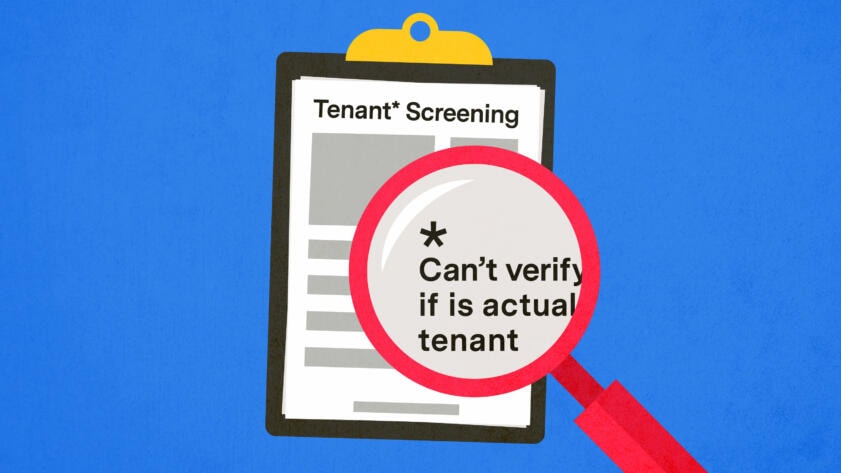RentGrow is a resident screening service widely used by landlords and property managers to evaluate potential tenants. When you apply for an apartment, the landlord may request a tenant screening report from RentGrow to assess your rental history, credit score, and other relevant background details. This report plays a crucial role in your ability to secure a rental property, as it often impacts the terms of your lease or the security deposit amount.

Errors on your tenant screening report can negatively affect your credit history, leading to rental application denials or the requirement of a co-signer or higher deposit. It’s essential to review these reports carefully, as inaccuracies in background check companies’ data can result in costly delays or missed housing opportunities. Taking steps to correct errors is key to ensuring you maintain a strong credit report and improve your chances of securing your desired rental property.
The Impact of RentGrow on Your Credit Report
When you apply for an apartment, RentGrow may appear on your credit report as an inquiry, particularly if the landlord requests access to your credit history. There are two types of inquiries: soft inquiries, which have no effect on your credit score, and hard inquiries, which may lower your score slightly. A hard inquiry occurs when a full credit check is performed, often during the rental application process.

Multiple hard inquiries in a short period can negatively affect your credit score, as lenders and landlords may view frequent applications as a sign of financial instability. Property managers and property owners rely on this data from tenant screening reports to make informed decisions about whether to approve or deny applications. Understanding how these inquiries impact your credit allows you to take proactive steps, such as disputing unauthorized hard inquiries to protect your overall credit history.
The Fair Credit Reporting Act (FCRA) and Your Rights
The Fair Credit Reporting Act (FCRA) protects your rights by ensuring that all information in your tenant screening report is accurate and up-to-date. Under the FCRA, tenant screening companies like RentGrow are required to provide you with reports that reflect correct personal and financial information. If you find errors, such as incorrect rental histories, mistaken identity, or outdated details, you have the right to dispute them.
When disputing inaccuracies, you should submit supporting documents to back up your claim, such as proof of payment history or identification records. After receiving a dispute, reporting agencies and tenant screening companies must investigate the issue within 30 days. If the investigation confirms that the information is inaccurate, the report must be corrected or deleted.
Knowing your rights under the FCRA is crucial because incorrect data in your report can lead to rental denials or unfair conditions. Ensuring accurate information is included in your tenant screening report protects you from these negative outcomes and helps maintain a positive credit history.
How to Review Your Tenant Screening Report for Accuracy ?
To review your tenant screening report for accuracy, you can request a free copy from RentGrow through their website or by contacting their Consumer Relations Team. Once you receive the report, carefully examine it for inaccurate information or outdated details. Verify all personal credit information, such as your rental payment history, identification details, and any listed debts. If the report contains errors, it’s important to act quickly.

Additionally, look for any adverse action notices from landlords, as these could indicate that the report influenced a negative rental decision. Double-check that the report reflects your correct payment history and contains no mixed-up data with other individuals. Any discrepancies in your tenant screening report should be promptly addressed to prevent them from affecting your rental applications in the future. Keep a record of your dispute process and follow up with RentGrow if necessary.
Steps to Dispute Errors on Your RentGrow Report
If you find inaccurate information in your RentGrow report, it’s essential to act quickly. Here’s a step-by-step guide to dispute errors directly with RentGrow or other background check companies:
- Obtain a copy of your report: Request a copy of your tenant screening report from RentGrow through their website or by contacting the RentGrow Consumer Relations Team.
- Review the report thoroughly: Identify any mistakes such as outdated data, incorrect rental history, or errors in your credit report.
- Submit a dispute form: Contact RentGrow by filing a dispute form online or by phone. Clearly state the errors and provide supporting documents (e.g., lease agreements, bank statements) that prove the correct information.
- RentGrow’s investigation: RentGrow is required by the Fair Credit Reporting Act to investigate your claim within 30 days. They will verify the inaccurate information with the data source.
- Notify landlords and credit bureaus: Once corrections are made, notify both your landlords and the relevant credit reporting agencies to ensure that the corrected information is reflected in future rental decisions.
Following these steps helps ensure your tenant screening report is accurate and doesn’t negatively impact your rental applications or credit history.
How to Remove Unauthorized Inquiries from Your Credit Report ?
Hard inquiries on your credit report occur when a company performs a thorough check of your credit history, often during a rental or loan application. If a hard inquiry was made without your permission, it can negatively affect your credit score, and you have the right to remove it. Here’s how:

- Obtain your credit report: Review your credit report from major credit bureaus (Experian, Equifax, TransUnion) to check for unauthorized hard inquiries.
- Verify unauthorized inquiries: Determine if any hard inquiries were made without your knowledge. Rental and loan applications are the most common causes, but any unauthorized inquiry should be flagged.
- File a dispute: Contact the credit bureau and file a dispute form. Provide documentation or a statement explaining that you did not authorize the inquiry. Include any supporting documents to validate your claim.
- Request removal: The credit bureau will investigate your claim. If it is found to be valid, the hard inquiry will be removed from your credit history.
Remember, soft inquiries (such as routine credit checks by landlords) don’t impact your credit score, but unauthorized hard inquiries should be disputed immediately to protect your credit score from unnecessary damage.
Filing a Dispute with Credit Bureaus: What to Expect
If you discover errors on your credit report, you can file a dispute with the major credit reporting agencies: Equifax, Experian, and TransUnion. Here’s how the process works:
- Submit the dispute: Start by contacting the relevant credit bureaus online, by mail, or by phone. You’ll need to provide details of the error and any supporting documents.
- 30-day investigation: After receiving your dispute, the credit bureau is required to conduct an investigation within 30 days. They will contact the data provider (such as a landlord or tenant screening company) to verify the accurate information.
- Correction or deletion: If the investigation finds the information inaccurate, the bureau must correct or delete it from your credit report. You’ll be notified of the results, and any corrections made will appear on your updated report.
By staying proactive in submitting disputes to credit reporting agencies, you can maintain a clean, accurate credit profile.
Seeking Help from a Consumer Law Firm for Tenant Screening Errors
When tenant screening errors result in rental denials or financial burdens, a consumer law firm can help you resolve the situation. Under the Fair Credit Reporting Act, tenant screening companies must provide accurate reports, and you can hold them accountable if they don’t.
Firms like Francis Mailman Soumilas, P.C. specialize in helping individuals who face issues due to screening report inaccuracies. They offer a free case review to assess your situation and determine if legal action is necessary. If the errors in your report caused a rental denial, higher deposits, or unfavorable lease terms, you may be able to sue for damages in court.
Engaging a consumer law firm ensures your dispute process is handled effectively, and your rights under the FCRA are fully protected. They can help you navigate the complexities of tenant screening disputes and secure compensation if errors have negatively impacted you.
Maintaining Good Credit Habits to Avoid Issues
To avoid issues with your credit report, it’s essential to practice maintaining good credit habits. Start by regularly reviewing your credit reports from all major bureaus to ensure they reflect accurate information. This will help you catch any errors early and dispute them before they affect your credit score. If you notice frequent inaccuracies or need assistance improving your credit, consider working with a reputable credit repair service like Lexington Law Firm, which specializes in correcting report errors.
By staying on top of your financial records and keeping your credit report in good standing, you can prevent potential issues from arising during rental applications or loan processes.
Common Mistakes to Avoid When Dealing with RentGrow
When dealing with RentGrow, common mistakes include failing to regularly review your report, neglecting to dispute inaccurate information, and ignoring unauthorized inquiries. These errors can lead to application denials and poor credit outcomes. Always check your tenant screening report for accuracy, and promptly dispute any mistakes. Additionally, don’t hesitate to seek legal help if necessary to resolve disputes.
Being proactive with RentGrow ensures that your tenant screening record is accurate, giving you a better chance of securing your desired rental property.
Final Steps to Take
In conclusion, safeguarding your financial reputation requires a proactive approach. Start by reviewing your tenant screening report and credit report for any errors. Dispute inaccuracies promptly with RentGrow or the credit bureaus, and ensure any unauthorized inquiries are removed. Maintaining good credit habits is essential for protecting your credit history and avoiding rental denials.
If needed, don’t hesitate to seek professional help to ensure your reports are accurate and up-to-date. By staying vigilant, you can confidently manage your tenant screening and credit records.
Call to Action
Take control of your rental future today! Check your tenant screening report and credit report for any inaccuracies or negative entries. If you find errors, consider a free case review to understand your legal options or consult a professional for credit repair. Whether you need help disputing issues or maintaining a strong credit score, the right guidance can make all the difference. Don’t wait—review your reports now and secure the best outcome for your rental applications.
Reach out for a consultation and ensure your credit is in its best shape moving forward!
